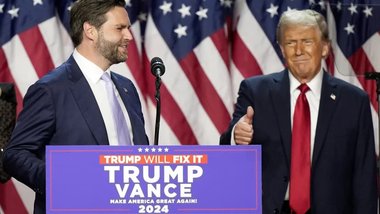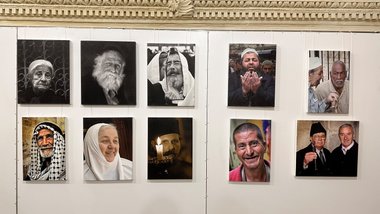Archbishop Thomas Edward Gullickson: I want to become a saint
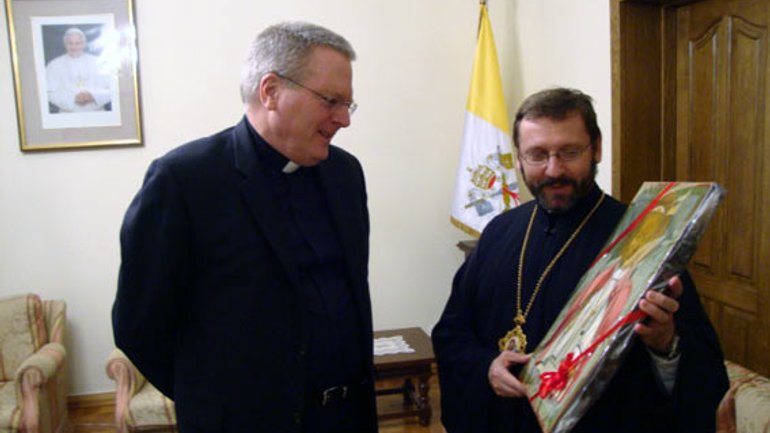
The new Apostolic Nuncio in Ukraine, Archbishop Thomas Gullickson has been in our country for only a few months. He presented his credentials to the President of Ukraine in November 2011. Our publication spoke with the Vatican ambassador about his impressions of Ukraine and local church life.
- Your Excellency, you’ve only been in Ukraine for a short time now. What are your impressions of our country?
I’ve been in Ukraine for only a few weeks. In addition, only my experience being in the Slavic world was living in Prague in 1990-93. I also lived also in eastern post-communist Germany for over eight years. Therefore, I like to make comparisons. It is interesting for me to evaluate the development of Ukraine over the 20 years of its independence. A lot of things catch my eye. The temptation is to make a superficial, but not accurate assessment. From what I have seen, I have been most struck by social stratification and the gap between the rich and the poor.
- What did you know about Ukraine before you came here? Did you want to come here?
I was happy when I found out that the Holy Father wanted to send me to Ukraine. I had always had good relations with Slavs. Later I was told that Ukraine was a country with dynamically developed Christianity. In other words, I am very happy that I have such a large and interesting field of activity.
- What do you want to do in this field and what tasks do you set for yourself?
My main task, the same one I had for almost 7 years when I was in the Caribbean, is to be the “link” between the Holy Father and Ukraine. I want to perform this task so that my work and ministry brings the Holy Father closer to Ukraine.
- You are a thread of unity between Ukraine and the Vatican on the one hand, and on the other your task is to maintain contacts with representatives of the Ukrainian government and the president. Today, many countries in the West are trying to defend democracy in Ukraine. What is the Vatican’s task in this area?
The role of the papal representative, as well as his diplomatic mission, is not solely a political role, as it is today in the world. For example, when I read the newspaper Den or Kyiv Post, I see discussions about Ukraine’s political sphere. The Holy See cannot be on one side or the other and say what consequences this will have because we refer to the next level, the quality of life in God. As for policy, the Holy See cannot point to specific directions of policy development. In other words, I came to Ukraine not to offer advice in state policy. I keep company with bishops and other representatives of the church, support them. For example, recently I supported Patriarch Sviatoslav and his statements regarding Ukraine’s penitentiary system.
- What are your impressions of Patriarch Sviatoslav? Will you become friends? 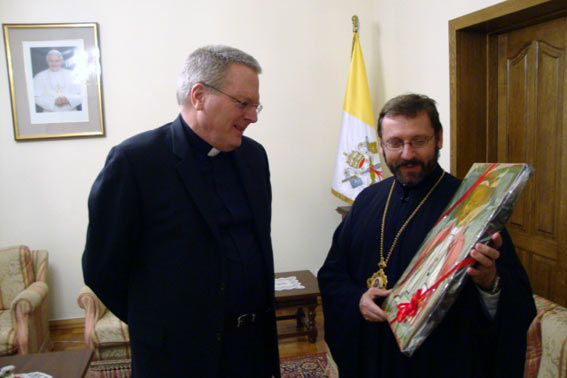 I have a very good impression of him, and I hope for a friendship. My task is not to tell him what to do, but to listen to him and observe his ministry in the church and the world.
I have a very good impression of him, and I hope for a friendship. My task is not to tell him what to do, but to listen to him and observe his ministry in the church and the world.
- How would you evaluate the relations between the Ukrainian Greek Catholic Church and the Roman Catholic Church in Ukraine?
The situation here is very interesting and unique in the whole Catholic world. In every country where there is the Catholic Church, the senior sister church always bears responsibility for church life. An example of this would be Romania, where there is both a Western and Eastern Catholic Church. The situation is quite different in Ukraine. The UGCC is the largest Eastern Catholic Church and it is the leading Catholic Church in Ukraine. Ukraine is a very interesting laboratory, which should be examined. Here you can find the key to the future of the church and ecumenism.
- Although the UGCC is the largest Eastern Catholic Church, it is also, says His Beatitude, a global church, because today a third the church is abroad.
This is true, and this, in a sense, is a challenge for His Beatitude and for the church which is located there. If we look at Brazil, for example, then we can see that despite the fact so many years have passed since the first immigrants arrived, their descendants still feel Ukrainian.
- What should Ukrainians know about you?
I still don’t know Ukrainian, but am slowly learning. This is my second time being head of a diplomatic mission, and this makes me happy.
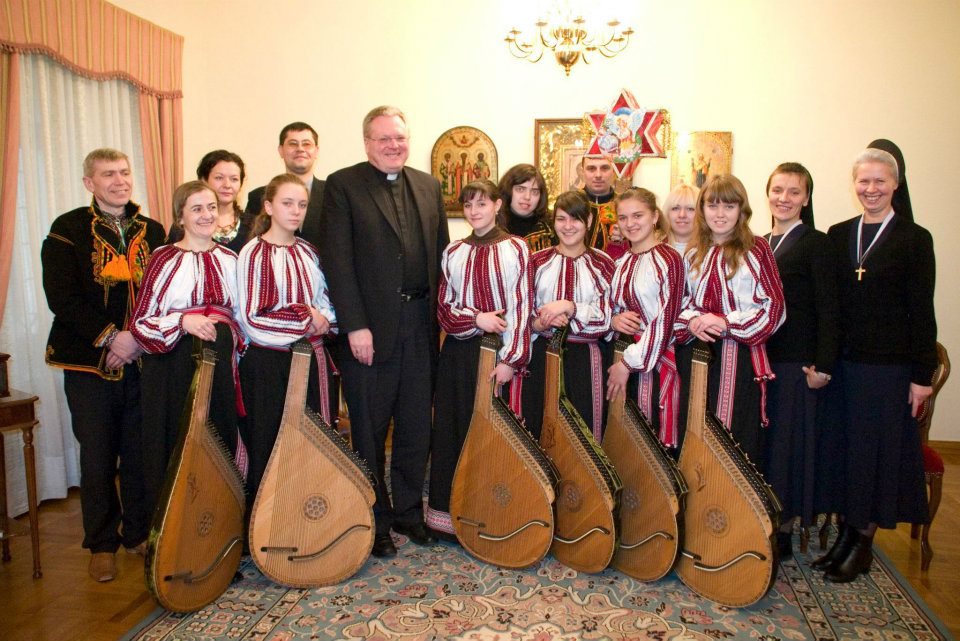
Biography
Thomas E. Gullickson was born in Sioux Falls, South Dakota, United States of America, on 14 August 1950 and ordained to the priesthood on 27 June 1976. He was ordained to the Episcopate in his hometown on November 11, 2004. He is titular Archbishop of Bomarzo.
He entered the diplomatic service of the Holy See on 1st May 1985 and has been appointed successively to the Diplomatic Missions in Rwanda, Austria, Czechoslovakia, Jerusalem, Israel and Germany.
He has a degree in Canon Law and he speaks English, Italian, French and German.
His first posting as Apostolic Nuncio was to Trinidad & Tobago, Antigua & Barbuda, Barbados, Commonwealth of the Bahamas, Commonwealth of Dominica, Grenada, Guyana, Jamaica, St. Kitts & Nevis, St. Lucia, St. Vincent and the Grenadines and the Republic of Suriname, twelve independent States in the region.
His first posting as Apostolic Delegate was to the Antilles Episcopal Conference region, comprising the English, French, with the exception of Haiti, and Dutch territories in the Caribbean, a total of twenty-two with their own governments. There are eighteen Dioceses and two Missio sui iuris, ecclesiastical entities, in the Antilles. Archbishop Gullickson is the fifth Apostolic Nuncio in this region.
On 21 May 2011, the Holy Father named him Apostolic Nuncio to Ukraine.
This interview was published in the magazine "Nash Sobor" in Ukrainian. Translated by Areta Kovalsky, RISU







